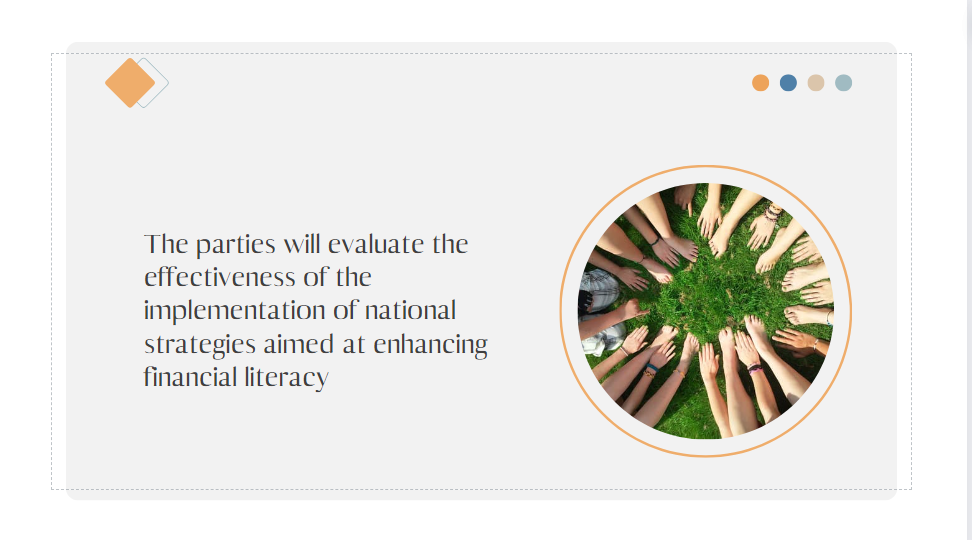Sber backs implementation of Russian Climate Monitoring System
Sberbank’s Senior Vice President for ESG participates in COP 28 plenary The National System for Climate Change Monitoring: Business and Government Benefits
Senior Vice President for ESG at Sberbank Tatiana Zavyalova has participated in the panel called The National System for Climate Change Monitoring: Business and Government Benefits, which is part of the program of the Russian stand at COP28 UAE.
The discussion focused on the creation of the Russian Climate Monitoring System (a major innovative project of state importance, MIPSI), the role this project plays in climate policy and sustainable development of the country’s economy, strengthening of the Russian position in global climate negotiations, mechanisms of adaptation to climate change, the role of the financial sector in the climate agenda and its potential in managing climate factors.
To manage climate risks and create effective adaptation tools, Russia is creating a climate monitoring system to track greenhouse gas emissions in ecosystems, from seas and oceans to urban agglomerations. The data will help build effective strategies for low-carbon development of the country and national businesses.
Tatiana Zavyalova, senior vice president for ESG, Sberbank:
Today, the issue of an effective climate policy is increasingly shifting to the economic domain. Russia will experience the effects of climate change two to three years later than other countries, but the negative impact of extreme weather events that occur due to rising temperatures is already being felt today. For Russia, permafrost thawing is the most significant long-term risk. While in the next five years, it is fires, floods, extreme winds and temperature shocks. For example, according to our early forecasts, the country’s damage from climate change between 2023 and 2027 could average RUB 580 bn annually. For some regions that are most vulnerable to weather changes, annual losses could amount to 5-6% of their gross regional product.
The stability of the financial system and the sustainability of the Russian economy largely depend on Sber’s operations as a backbone bank, said Tatiana Zavyalova. Therefore, Sber is also developing new technologies and AI solutions to help the government, Russian regions and businesses manage climate risks more effectively.
Sber has created an AI-powered system that forecasts climate risk events and their economic ramifications. These solutions will also benefit the implementation of the second phase of measures of the national climate change adaptation plan.
Ilya Torosov, deputy minister of economic development of Russia:
Decarbonization efforts and ensuring an energy transition are impossible without science. To this end, we launched the Russian Climate Monitoring System (MIPSI) last year. For the government, this means access to the latest scientific data as we speak the same language with the world, proof of the national approaches to decarbonization of the economy with expert opinions and data, and use of the system for adaptation planning. Businesses will be able to use the system to assess climate risks when designing corporate strategic documents and calculating greenhouse gas emissions of their companies or projects.
Tatiana Zavyalova, senior vice president for ESG, Sberbank:
The Russian Climate Monitoring System (MIPSI) is an incredible breakthrough to collect a high-quality amount of data. This data base will allow Russia, regions and businesses to refine economic models to develop climate strategies at the next level. We welcome the realization of the state project on climate monitoring and participate in its implementation. We hope that Sber’s expertise and its high-tech solutions, including AI-driven ones, will also contribute to Russia’s attainment of the national climate agenda goals.
Sber’s models have a 6-12-month forecast horizon, which means they can be used for cost reduction and operational risk management. Leveraging these models, the bank is already calculating credit and insurance risks related to climate change. At the same time, the solutions are also able to forecast new opportunities, for example, helping to identify areas where climate change may create favorable conditions for the development of agriculture and forestry.
Tatiana Zavyalova, senior vice president for ESG, Sberbank:
In conclusion, I would like to note the importance of cooperation on Russia’s climate track at the international level, too. Next year, Russia will chair BRICS, which gives a good opportunity to initiate joint projects. To create a proper platform to address interstate issues of climate agenda management, to develop cross-border projects, synchronize approaches to carbon regulation and join efforts within the energy transition, Sber proposes the establishment of the BRICS Climate Council and then the BRICS+ Climate Council.
Other speakers included First Deputy Minister of Economic Development of the Russian Federation Ilya Torosov; Director of the Institute of Economic Forecasting of the Russian Academy of Sciences Alexander Shirov; Director of Yu. A. Izrael Institute of Global Climate and Ecology Anna Romanovskaya; and Director of the Sustainability Department of Rosatom.
The 28th meeting of the Conference of the Parties (COP) to the UNFCCC is being held in Dubai, UAE, between November 30 and December 12. Country speakers discuss and agree on the measures to limit global temperature rise, adaptation and mitigation of climate change impacts. The Russian pavilion’s business program is being streamed at the link.






















































First, please LoginComment After ~